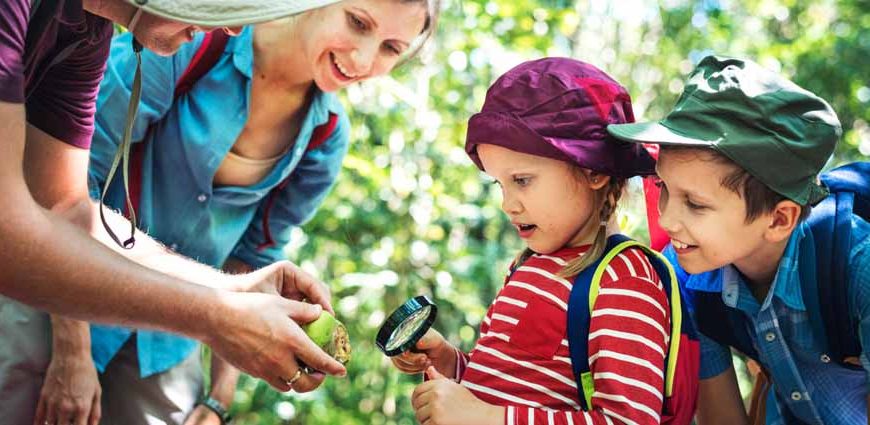Field trips offer priceless learning opportunities beyond the confines of a conventional classroom environment. There would be multiple benefits of field trips. These educational outings allow students to experience real-world settings, participate in practical activities, and speak with experts in various industries. Field trips are especially helpful for kindergarten- and school-aged kids since they encourage experiential learning and deepen understanding of academic subjects. In this post, we’ll look at the importance of field trips and things parents and teachers should consider when looking for educational trip ideas.
- The Importance Of Field Trips Expanding Perspectives and Promoting Exploration
- Hands-on Learning and Experiential Education
- Social and Emotional Development
- Connecting Theory to Real-Life Applications
By introducing kids to unfamiliar settings and situations, field trips have the potential to broaden their perspectives. This will also help them understand the importance of a field visit. Field trips for kindergarten and elementary school students let them leave their comfort zone and interact with the outside world. Additionally, the importance of educational trips cannot be underestimated. These trips allow kids to put what they have learnt in the classroom into practice, whether they are visiting a museum, zoo, botanical garden, or historical site. Moreover, field trips can significantly build friendships and lifelong memories in kids.
Furthermore, children get a stronger grasp of a variety of disciplines, including history, science, and culture, by immersing themselves in numerous environments. For instance, a trip to a science museum can pique their interest in the natural world and scientific occurrences. They can participate in experiments, view interactive exhibitions, and engage in hands-on activities, thereby solidifying their understanding of scientific concepts. Educational field trips also foster a sense of wonder and awe, stimulating children’s curiosity and encouraging them to explore new areas of interest.
Additionally, field trips give kids the ability to speak with experts in other fields. They can converse with museum curators, park rangers, historians, or scientists to learn more about their jobs and fields of study. Young learners are motivated by these interactions, which give them role models and ignite their passion for future endeavours.
Children’s horizons are expanded by field trips, which promote curiosity and offer practical learning opportunities outside of the classroom. These outings allow kids to interact with professionals, see academic ideas in action, and foster their natural curiosity and sense of wonder about real-world situations.
The importance of field trips in education can be evident when children share with you experiences regarding hands-on learning and experiential education. Field visits offer a special chance for experiential education and hands-on learning. In contrast to traditional classroom settings, where instruction frequently occurs through lectures and textbooks, educational excursions include kids in hands-on activities that help them better comprehend a range of subjects.
For instance, kindergarten field trips could concentrate on sensory encounters that arouse children’s senses and advance their cognitive development. They can learn more about the world around them by going to a farm or a nature reserve where they can touch, smell, hear, and see the natural elements. They can interact with pets, sow seeds, learn about other environments, and take part in physical activities that develop their gross and fine motor abilities.
Another importance of educational trips is that it also gives students the chance to put what they have learnt in the classroom into practice. Students can experience historical reenactments, investigate artefacts, and follow in the footsteps of ancient civilisations by visiting historical sites. They are better able to understand historical events and cultural practices thanks to this experiential learning, which helps students draw links between what they learn in the classroom and actual situations.
Likewise, interactive workshops and performances that actively involve kids in the learning process are frequently included on field excursions. Children can conduct experiments, produce artwork, and investigate cutting-edge technologies in science centres, art galleries, and technology displays. Students can strengthen their creativity, problem-solving skills, and critical thinking through these practical experiences.
Field visits provide hands-on learning opportunities that stimulate the senses, motivate curiosity, and advance experiential learning. Children who actively engage in educational activities have a stronger comprehension of academic subjects, improve their cognitive and motor skills, as well as their capacity for creativity and problem-solving.
Field trips greatly aid the social and emotional growth of kids. Moreover, the importance of field trips in education can be witnessed in children’s social and emotional development. These outings give students the chance to connect with their teachers and friends in a new setting, promoting social bonding and emotional development.
Children can work with their classmates on various assignments and projects while on field trips. They can participate in group activities, collaborate to find solutions to issues, and share their thoughts and views. These group activities foster cooperation, teamwork, and communication—all are critical for future academic and personal success.
Children are urged through field trips to venture beyond their comfort zones and acclimatise them to unfamiliar surroundings. They might come into strange situations, get to know new people, and move about in various settings. These encounters help people become more resilient, adaptable, and flexible, which improves their emotional health and self-assurance. One can only wonder how many benefits of field trips are there.
Also, field trips offer a welcoming learning atmosphere where kids of all skills and backgrounds can collaborate and learn together. Students gain empathy, respect, and understanding for others via sharing in shared experiences. They are exposed to many cultures, viewpoints, and lifestyles, which encourages tolerance and an inclusive viewpoint.
Field trips for kindergarten encourage collaboration, flexibility, and empathy in children, which aids in their social and emotional development. These outings give kids the chance to connect with their teachers and friends in various settings, promoting social bonding and emotional development.
The importance of field trips will be evident when kids connect theoretical explanations to real-life practical applications. Children have the opportunity to integrate their academic learning to practical applications on field trips for kindergarten. Students can see how academic ideas are used in real-life scenarios by interacting and seeing professionals in various fields, making their learning more meaningful and applicable.
Students may learn how scientific theories are used in research or production processes by visiting a science lab or a manufacturing site, for example. They can watch engineers design and construct sophisticated systems or scientists perform experiments. These opportunities help students grasp the practical implications of scientific ideas and technology breakthroughs by bridging the gap between theory and practice.
Students can use school field trips as a platform to apply what they have learned in the classroom to real-world problem-solving situations. For instance, historical places can offer students the chance to evaluate original sources, interpret historical events, and rebuild narratives. Students participate in such events to: develop critical thinking skills and enhance their ability to analyse and synthesise information.
Key Things Parents and Teachers Should Know When Looking at Preschool Field Trip Ideas
- Budget Considerations:
- Student Safety Comes First:
- Educational Purpose:
- Understanding Student Need:
- Role of Teachers and Staff:
- Involving Parents and Students:
- Trip Duration:
- Preparation Before and After the Trip:
Make sure the educational trip idea fits within the school’s financial plan. It’s also helpful to understand any costs parents may need to cover and whether any fundraising will be involved.
Safety is the top priority. Check what measures are in place for transportation, lodging, and emergencies at the destination. Ask how preschool authorities plan to supervise students throughout the trip.
The trip should have clear learning goals. It’s important that the destination connects to what students are studying in class and gives them meaningful, hands-on learning experiences.
As teachers, it’s important to consider each student’s individual needs—whether physical accessibility, language support, or accommodations for special needs—to ensure every child can participate fully.
Teachers play a crucial role during the tour—supervise, guide learning activities, and keep students engaged. Find out how they’ll support your child during the trip.
Parents and students should be involved early in the planning process. Your feedback can help shape a more thoughtful and inclusive experience.
Check if the length of the tour works well for your child’s routine, health, and overall readiness. A balance between learning and rest is important.
Activities before the trip can help students understand what they’ll see and do, while post-tour projects or discussions can reinforce what they’ve learned.
Conclusion
Educational field trips can encourage students to think about their future careers and objectives. By interacting with professionals in diverse fields, students can learn about numerous career choices and the information and skills needed for certain vocations. Thanks to this exposure, they will be better able to choose their future academic and career paths, increasing the need and importance of educational trips.
In this article, we have covered the significance of field trips for kids and how to plan a good educational trip for kids. Meanwhile, you can also check out our blog, Exciting Travel Games For Kids- Must-Try Entertainment For Road Trips And Flights, for fun activities that you can add to your preschool field trip ideas or to-do list.
For informative and accurate articles on all things related to your newborn-toddler’s development, growth, health and nutrition, follow EuroKids Blogs and do check out our nationally recognised preschools – EuroKids Preschools for the first step in your kid’s educational journey!
















